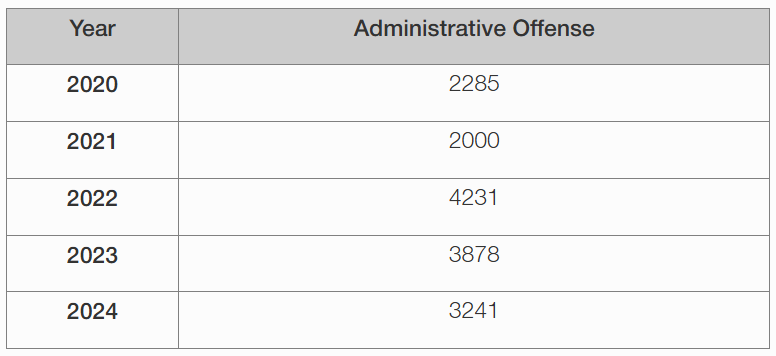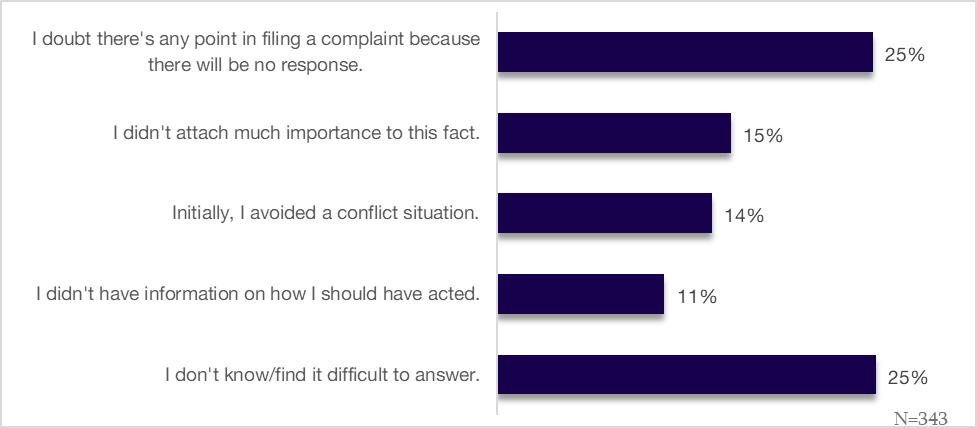When we buy a product, we often believe it's safe, but how much do we actually control food safety? Food safety isn't just the responsibility of state agencies and manufacturers. Citizen involvement plays a crucial role in this process. Each of us has the opportunity to make an informed choice: read labels, check production dates, and report suspicious cases to the relevant authorities. These steps directly affect the health of us and our family members, and public well-being.
Despite the primary responsibility falling on manufacturers and state agencies, public involvement plays a decisive role in reducing food-borne risks. Below are three main reasons why citizen involvement in food safety issues is critically important:
- Raising Awareness and Protecting Health
Food-related illnesses can be caused by contaminated or improperly processed products. An informed consumer chooses products with greater caution (paying attention to storage conditions and product expiry dates), and properly prepares and stores food, thereby reducing the risk of poisoning and the spread of foodborne diseases. For example, in Japan, around 5,000 public events on food safety are held annually: lectures, trainings, and exhibitions. This includes an annual public campaign that teaches how to distinguish expired or poorly stored products[1]. The Food Education ACT (2005) obliges schools to teach adolescents how to read labels, differentiate expiry dates, observe storage conditions, and compost or reuse leftover food. Consumer knowledge and preventative actions significantly reduce incidents of poisoning.
- Transparency and Improvement of Standards
When citizens actively express their stance-demanding labeled products and controlling adherence to storage conditions and expiry dates-they push manufacturers to comply with safety norms. Such involvement contributes to the adoption of higher standards and the effective implementation of regulations. For example, the European Union operates special hotlines and online platforms where citizens can file complaints regarding food safety issues. A similar system, such as the Rapid Alert System for Food and Feed (RASFF), has significantly improved the management of food safety risks by facilitating the rapid dissemination of information about food-related problems among countries and the timely withdrawal of products from markets[2].
- Effectiveness of State Regulations
Civilian activity helps state bodies implement more effective policies. Citizen responses to food safety violations often trigger changes. The higher the rate of appeals, the more effective the response of state bodies becomes. For example, in Canada, based on consumer complaints, the government tightened food establishment inspection rules and introduced a public reporting platform. Based on complaints reported by the public on this platform, the Canadian Food Inspection Agency (CFIA) conducts inspections in high-risk facilities, which allows them to effectively solve real problems[3].
Level of Citizen Involvement in Georgia
The results of inspections of food retail and catering facilities by the Food Safety Agency show that the rate of food safety related offenses in these facilities increased in 2020-2022. A decreasing trend is observed in 2022-2024, however, the rate of administrative offenses is higher than in 2020-2021.
Table 1. Rate of Food Safety Related Offenses by Year

Regarding the appeal rate to the National Food Agency, according to information provided by them, the number of consumer complaints related to food safety violations increased in 2020-2024. Despite the increasing trend, our society still has the potential to become more actively involved in food safety issues.
Table 2. Rate of Appeals Related to Food Safety Issues by Year

According to a study[4] conducted in 2023 by the Georgian Center for Strategic Research and Development (CSRDG) and the research and management consulting company ACT, the main reasons for not complaining about food safety violations were identified. Most often, citizens do not complain about a food safety violation because they believe there will be no response (see Graph 1).
Graph 1. Main Reasons for Not Complaining About Food Safety Violations

How to Increase Citizen Involvement?
The following recommendations are based on international experience that has yielded the best results in terms of increasing public involvement in various countries. However, when applying them, it is essential to consider the Georgian reality, cultural specificities, and the readiness of society, so that the recommendations effectively correspond to the local context.
Increasing public involvement in food safety issues requires a systemic and multifaceted approach. International practice shows that successful models are based on the integrated use of education, accessible information, citizen involvement platforms, and accountable governance.
- Integration of educational programs in schools and public spaces. For example, in Sweden and Norway, special courses on healthy eating and food safety are integrated into school curricula. Similar educational programs help inform future generations and develop a sense of responsibility.
- Awareness-raising campaigns and social media involvement. For example, the U.S. Food and Drug Administration (FDA) and European Union countries regularly conduct information campaigns that include videos, banners, and social network activities to provide consumers with information about safety risks and their role.
- Electronic and mobile platforms for filing complaints. For example, in Singapore and Estonia, citizens can easily report violations and receive feedback via online and mobile applications. Such platforms reduce bureaucratic barriers and increase involvement rates.
- Citizen participation in policy formulation. In France, advisory councils are in operation where citizens can participate in the discussion of legislative initiatives. This increases trust in the system and fosters a responsible society.
- Cooperation with non-governmental organizations. It is important to involve local NGOs that are close to the population and effectively collect feedback. For example, in Germany, non-governmental organizations implement programs to encourage indifferent consumers.
Food Safety - Where to find answers?
In case of violation of food safety rules - such as expired or contaminated products, violation of storage rules, disregard for hygiene requirements in food establishments, incomplete or incorrect labeling, cases of poisoning - citizens can contact:
- National Food Agency (NFA). The Agency is the main state body responsible for food safety and hygiene supervision in Georgia. The Agency's functions include monitoring food quality and safety at food retail and catering facilities. Consumers can file a complaint remotely (hotline: 1501, email: info@nfa.gov.ge).
- Georgian Consumers' Federation (Non-Governmental Organization). This organization actively participates in the process of protecting consumer rights, consults consumers, and promotes raising their awareness regarding food safety issues. Consumers can file a complaint and receive consultation remotely (hotline: +995 (555) 25 50 10, email: geoconsumer@gmail.com).
Regarding food safety issues, the public has the opportunity to get information on the website www.momxmarebeli.ge. The website belongs to the non-governmental organization "Georgian Center for Strategic Research and Development" (CSRDG) and is managed by the Consumer Rights Protection Program. With the help of the website, consumers can get information on the following issues:
- What rights does the consumer have
- What obligations do product manufacturers and sellers have
- Whom, where, and how to contact if your rights have been violated
Food safety is not just an issue for specialists - it is a matter of public health. Informed, active, and responsible consumers create a solid system that ensures the health and well-being of the population.
[1] In Japan, the Food Loss Reduction Promotion ACT was enacted in 2019, declaring October as the month for raising awareness on this topic.
[2] https://www.sciencedirect.com/science/article/pii/S2405844023103549
[3] In 2019, the "Safe Food for Canadians Regulations" (SFCR) came into force, which includes a risk-based inspection model-the frequency of inspections is determined by complaints, past violations, and hazard trends.
[4] "Study of the Knowledge, Attitudes, and Behavior of the Georgian Population Regarding Food Safety and Ongoing Reforms in This Direction"
Data Sources:
- National Food Agency Information Service
- https://nfa.gov.ge/Ge/Reports
- National Statistics Office of Georgia
- https://www.geostat.ge/ka






